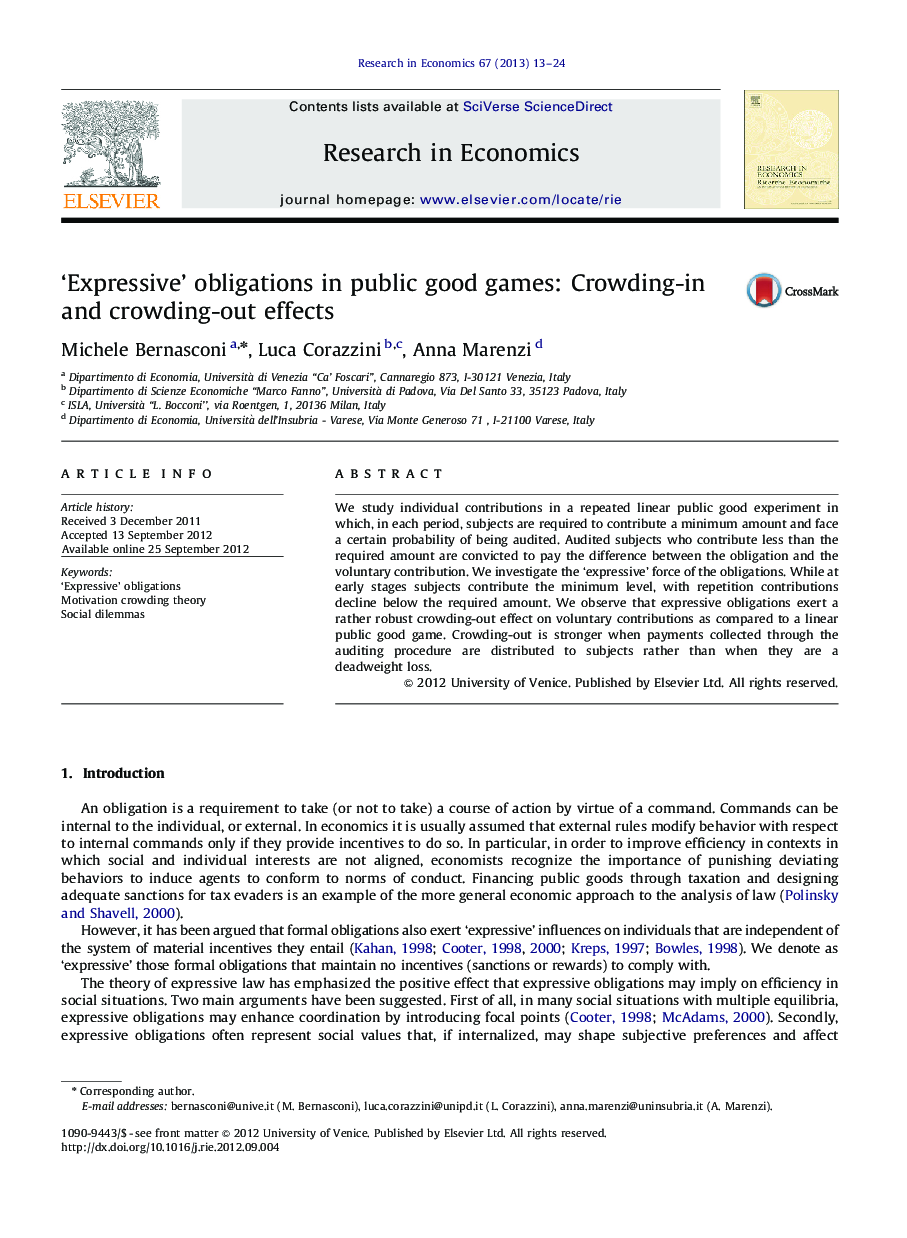| Article ID | Journal | Published Year | Pages | File Type |
|---|---|---|---|---|
| 983526 | Research in Economics | 2013 | 12 Pages |
We study individual contributions in a repeated linear public good experiment in which, in each period, subjects are required to contribute a minimum amount and face a certain probability of being audited. Audited subjects who contribute less than the required amount are convicted to pay the difference between the obligation and the voluntary contribution. We investigate the ‘expressive’ force of the obligations. While at early stages subjects contribute the minimum level, with repetition contributions decline below the required amount. We observe that expressive obligations exert a rather robust crowding-out effect on voluntary contributions as compared to a linear public good game. Crowding-out is stronger when payments collected through the auditing procedure are distributed to subjects rather than when they are a deadweight loss.
► Expressive obligations are formal obligations which maintain no incentives to comply with. ► We experimentally study the impact of expressive obligations in a public good game. ► We find both crowding-in and crowding-out effects of obligations on voluntary contribution. ► Crowding-in is due to the fact that obligation help coordination among players. ► Crowding-out is due to a displacement of people's internal motivations for pro-social behavior.
